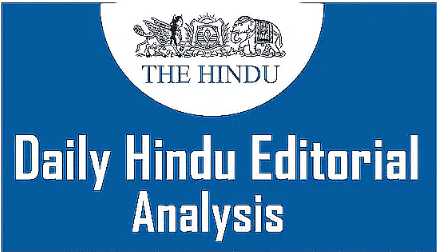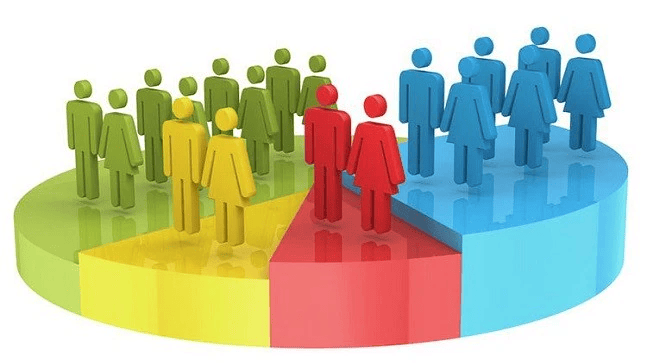UPSC Exam > UPSC Notes > Current Affairs & Hindu Analysis: Daily, Weekly & Monthly > The Hindu Editorial Analysis- 29th November 2024
The Hindu Editorial Analysis- 29th November 2024 | Current Affairs & Hindu Analysis: Daily, Weekly & Monthly - UPSC PDF Download

Census 2025 as a Comprehensive Citizen Registry
Why in News?
The government plans to begin the long-delayed Census in 2025, which will be followed by delimitation of Lok Sabha seats.
About
- The census is usually held every ten years to refresh the National Population Register (NPR).
- The census that was supposed to take place in 2021 was delayed because of the Covid pandemic.
- The delimitation of voting districts for the Lok Sabha and the State Legislative Assemblies will be based on the first census conducted after 2026.

Census in India
- Census refers to a survey that collects information about the population in a specific area, including details about a country's demographics such as age, sex, and occupation.
- History: The first nationwide census in India was conducted in 1881, led by W.C. Plowden, who was the Census Commissioner at the time. This census was the first to be held every ten years.
- The first census after India gained independence took place in 1951. Since then, a census has been conducted at the start of each decade.
- The Constitution of India requires that a census is conducted, but the Census of India Act of 1948 does not define when or how often it should occur.
- The population census is carried out by the Office of the Registrar General and Census Commissioner of India, which operates under the Ministry of Home Affairs.
Need for the Census
- Accurate Population Data: Having a correct count of people is essential for planning and managing different national and state projects. This includes areas like healthcare and infrastructure.
- Socio-Economic Insights: Data from the census about literacy, income, jobs, and housing conditions reveals social issues and helps in creating specific solutions.
- Evaluating Development Progress: Looking at census data over many years helps us understand how effective past policies have been, which can guide future plans and strategies.
- Environmental Planning: The census gives information about where people live and the pressures on demographics, which aids in efforts towards environmental sustainability.
Benefits of Census
- Informed Policy Making: The Census offers detailed information about people's lives and economic situations. This helps the government make smart choices about important areas like education, healthcare, housing, employment, and infrastructure.
- Resource Allocation: Having accurate population numbers is crucial for distributing resources fairly between states. This is especially important for areas like public health, education, and welfare.
- Electoral Reforms and Delimitation: Data from the Census plays a key role in deciding how to redraw electoral district boundaries. This ensures that people are fairly represented in both Parliament and State Legislatures.
Way Ahead
- Updated Data for Post-Covid Recovery: Since the last Census was conducted in 2011, the population has changed significantly. It is important to have new data to understand these changes in the economy and society.
- Delimitation Requirements: The delimitation process is scheduled to occur after 2026. To ensure fair representation that reflects current population trends, it is essential to have accurate and up-to-date population information.
First Moves
Why in News?
India’s 17-year-old Grandmaster D Gukesh recently made history by winning the Candidates Chess Tournament in Toronto to become the youngest ever challenger to the world title.

About Candidates Chess Tournament
- This event is the final one in the World Championship cycle before the actual World Championship match.
- The International Chess Federation (FIDE) has been in charge of organizing the World Championship cycle since 1948 and the Candidates Tournament since 1950.
- Since 2013, the Candidates Tournament has taken place every two years.
- The number of players in the tournament has changed over the years, ranging from eight to fifteen players.
- Currently, it features eight players competing in a double round-robin format, meaning that each player plays against all others with both colors.
Why is the Candidates Tournament Important?
- The Candidates Tournament is the second most important event in the World Championship cycle. The winner of this tournament gets to compete against the current world champion in the championship match.
- Various tournaments take place in the World Championship cycle, but the main goal of all these events is to earn a spot in the Candidates Tournament.
- Here are the ways players can qualify for the Candidates Tournament:
- The runner-up from the previous World Championship match.
- The top three finishers in the FIDE World Cup.
- The top two finishers in the FIDE Grand Swiss tournament.
- The winner of the FIDE Circuit, which measures tournament results from January to December of the year before the Candidates Tournament.
- The player with the highest FIDE rating in January of the year when the Candidates Tournament is held.
The document The Hindu Editorial Analysis- 29th November 2024 | Current Affairs & Hindu Analysis: Daily, Weekly & Monthly - UPSC is a part of the UPSC Course Current Affairs & Hindu Analysis: Daily, Weekly & Monthly.
All you need of UPSC at this link: UPSC
|
38 videos|5293 docs|1118 tests
|
Related Searches





















